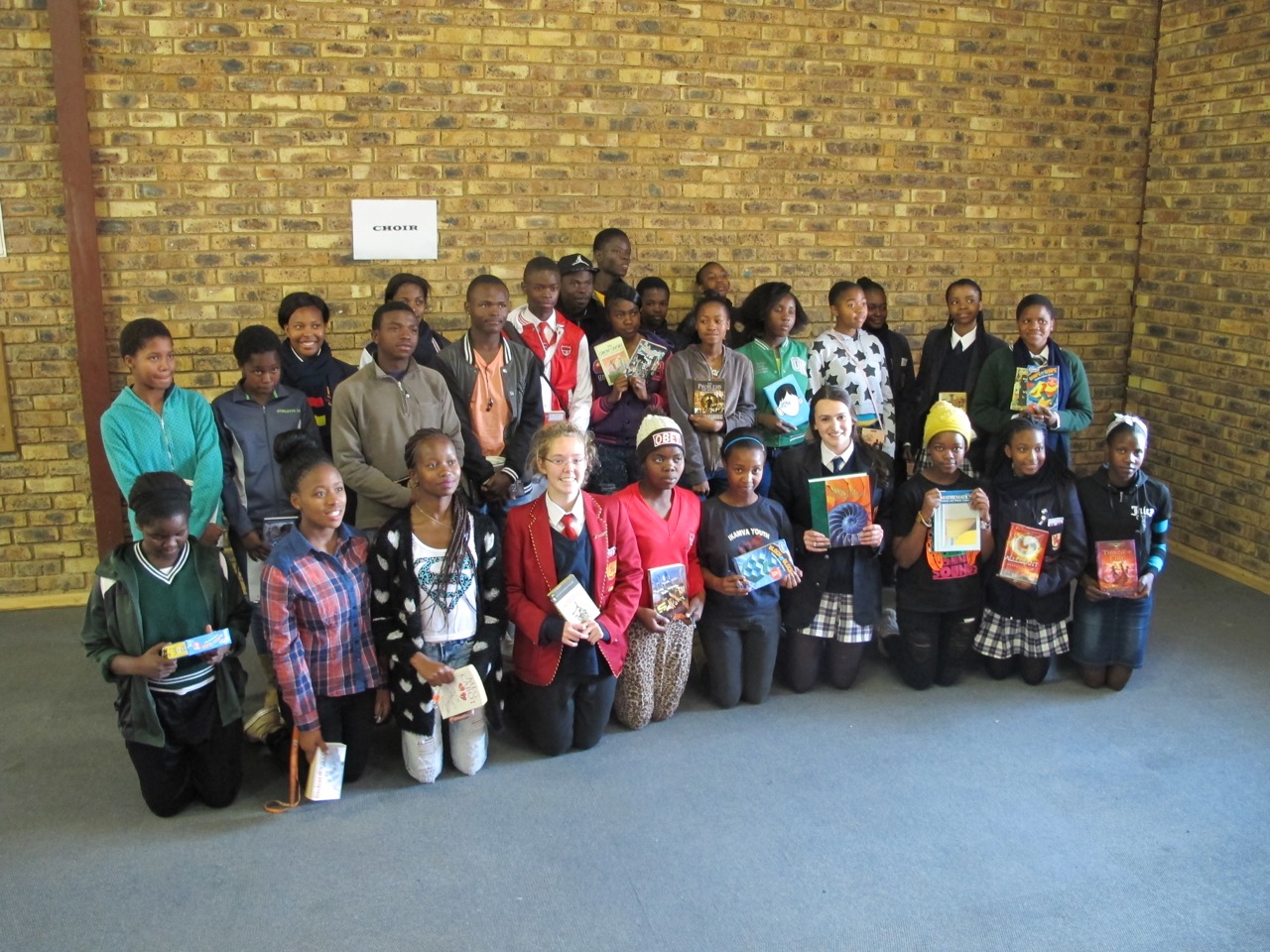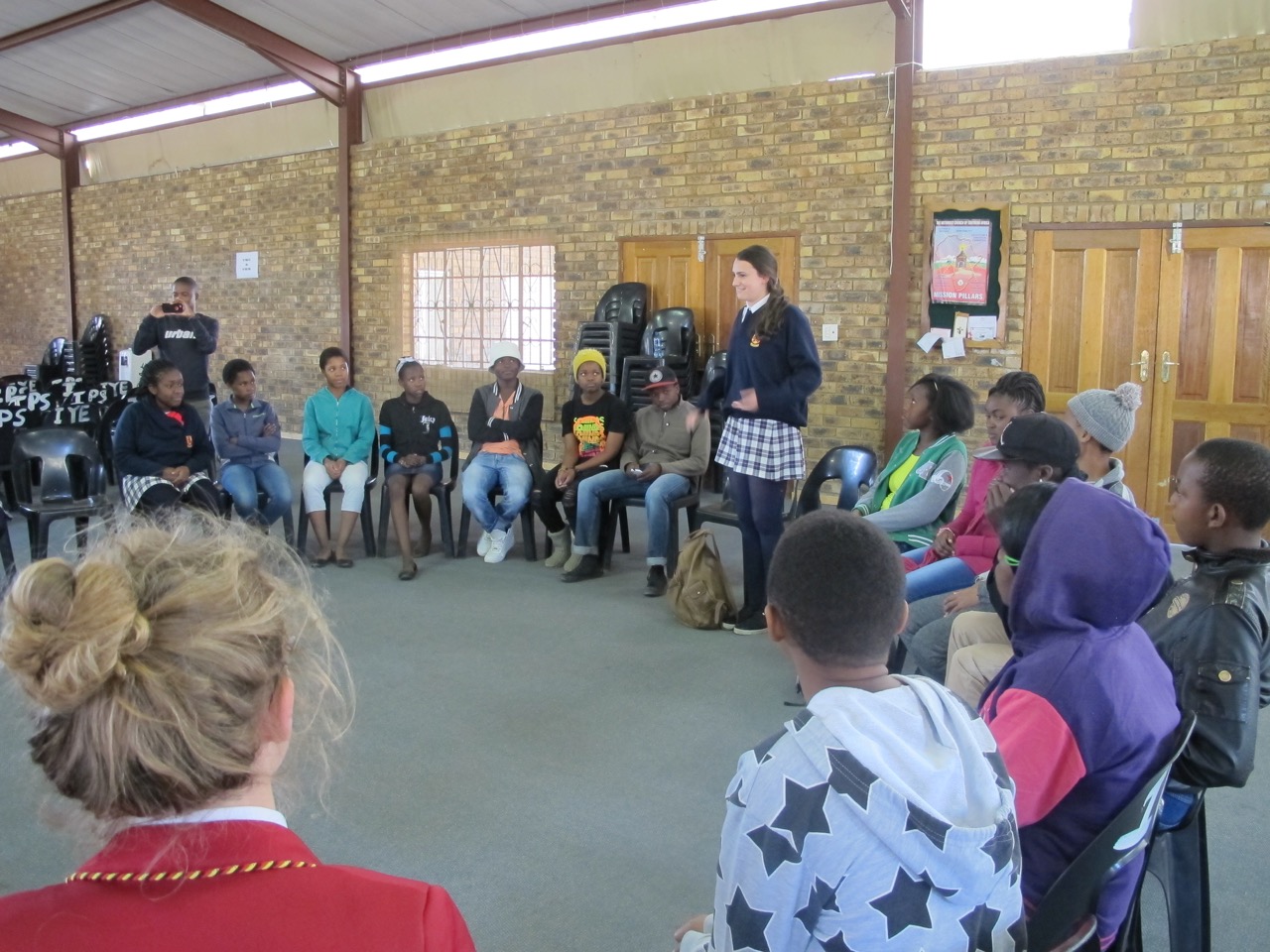“In conversation, we were all able to see and understand circumstances beyond our own..."
In 2011, when I was 13 years old, my family and I traveled to South Africa. My dad was born and raised in Cape Town. In 1976, the Soweto Uprising and corrupt Apartheid government prompted his parents to move their family to Toronto, Canada. During our trip, I spent time in Khayelitsha, Langa, and Gugulethu, black townships near Cape Town, with children close to my age who shared many of my interests. I was struck by their harsh living conditions and bleak educational futures relative to my own. The connections I made inspired my desire to make a positive difference. But, at the time, I was in middle school and I had no clue how.
By the end of 9th grade, however, with my parents’ encouragement, I was ready to propose my vision of a “South Africa Project” to my teachers. I had three large, ambitious goals: to raise awareness about some of the circumstances of South African children in black townships; to facilitate a cultural exchange between groups of students from the Hackley School in New York and South African students; and to find resources for a group of children. For a year, I took baby steps; I typed long, detailed project proposals, attended international programs and conferences, and gathered support from my peers. But, as worthy as my goals were, they were too broad and vague. I felt frustrated and daunted.
Then in early 2014, a family friend invited me to Facing History and Ourselves’ New York office to meet Dylan Wray, the director of Facing History’s South African partner organization, Shikaya. This opportunity was a major catalyst for my project. Connecting with Facing History and Shikaya, and explaining my mission to Dylan and Facing History staff members, helped me establish concrete, achievable objectives. Through Shikaya, I met IkamvaYouth, a South African-based program that equips disadvantaged students with the skills and resources they need for college, and provides them with a supportive and encouraging academic community.
After connecting with these key people, my project transformed. I envisioned, initiated, and established a three-way collaboration between my school (Hackley), IkamvaYouth, and Dainfern College in Johannesburg, South Africa (a private school attended by both black and white South African students connected to Hackley through our Global Education program). Over Skype, my Hackley peers, some Dainfern students, and I brainstormed ways to best support and engage in the IkamvaYouth community. We decided that book drives for inspiring novels and academic textbooks could enrich the Ikamva Youth curriculum. Hackley and Dainfern ran drives in late May. In total, we collected about 150 books.

Alexandra and students posing with some of the collected books at IkamvaYouth.
For three weeks this past summer, I traveled by myself to Johannesburg for a student exchange at Dainfern College. One day, nine Dainfern students and I drove to the nearby IkamvaYouth center to give them the 150 books. I expected a quick drop-off. Instead, it turned out to be a thoughtful conversation with about 40 students. We talked about what success means to us, how competition between countries can mirror competition between people, and how the definition of hard work is specific to the person doing that work. We shared our thoughts on community pressures, personal struggles, goal-setting and how to jump over hurdles. We sat in a circle for hours learning about one another’s experiences.
This meeting was the culmination of almost three years of work. More importantly, it was a peaceful, constructive, and stimulating union of people from different backgrounds. The books themselves, such as Wonder by R.J. Palacio, Caucasia by Danzy Senna, and The Girl With the Pearl Earring by Tracy Chevalier, were the core. The inspiring novels and academic textbooks brought us together and sparked interesting discussions. In conversation, we were all able to see and understand circumstances beyond our own. It was personal. We learned lessons from each other, connected as peers, and interacted despite differences. There was only enough time for two hours of conversation, but frankly, we could have continued for days. But, talking, even for a short amount of time, had a profound positive impact. It gave me and my South African colleagues, global and cultural perspectives.

Alexandra leading the conversation at IkamvaYouth
Facing History allowed me to communicate and connect with people who exposed me to new pathways and helped advance my project. This is an important thing to recognize and appreciate. When presented with the opportunity to hear people’s stories, we must jump towards it and grab it. To engage in the Facing History community is to be presented with a key to your globally minded future.

